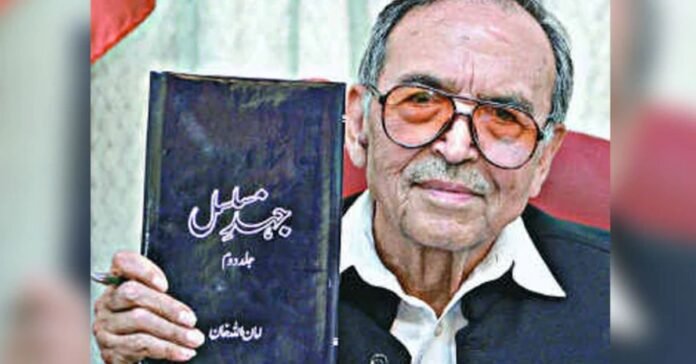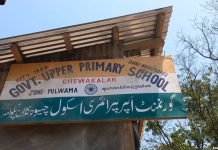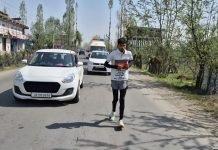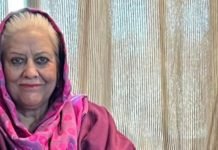
Al-Fateh was the branch of National Liberation Front that believed in armed struggle. National Liberation Front was formed in 1967 in Pakistan by Amanullah Khan with some other like-minded persons. They had branches who worked on many fronts like political and religious.
In 1971, the under-ground organization at that time, was unearthed which had long-lasting impact on the history of Jammu and Kashmir. However, there are many relevant events with it that make it quite difficult to arrive at the conclusion.
Hijacking of two airplanes of India and the formation of Bangladesh are the two significant events that have close contact with the formation and the unearthing of the Al-Fateh. Moreover, the entry of Indira Gandhi in Kashmir politics, when she told Sheikh Muhammad Abdullah that what were you going to do in case of removal of Article 370; when this empty shell was to be removed actually from the ground. Apart from these, participation of Ghulam Muhammad Bakshi in Lok Sabha elections, who had been sidelined by all and sundry, decided to test his fortune again. It is in this backdrop that we are going to discuss the Al-Fateh.
Zahir-Ud-Din in his book” Flashback” says, “When police unearthed the Al-Fateh on January 13, 1971, one of its members, Abdul Rouf (name changed) was in Delhi with a group of sportsmen from different Valley schools. He visited the Pakistan High Commissioner’s office where he was given a letter for the Plebiscite Front founder, Mirza Afzal Beigh, who was luckily in Delhi.”
Here, Shabnam Qayoom says that under the Public Security Act, the State Government had banned his entry into Jammu and Kashmir. Rouf called on him and gave the letter to him. After going through the letter, Beigh took him to the Jamia Masjid area where he introduced him to a group of persons as a student leader from Kashmir.
Rouf during the interview with the author said: “When I handed over the letter to Beigh, he urged me to accompany him to Jamia Masjid. He also requested me to tell the people at Jamia Masjid that Al-Fateh was not an indigenous organization. To this day, I could not understand why Beigh wanted me to lie.”
At the Pakistan High Commissioner’s office, he was also told to convey a message to the Al-Fateh leadership. “Tell them time is still not ripe,” he was told. Rouf could not comprehend the message. When asked whether he read Beigh’s letter, he remained mum.
He said there was an understanding between Mirza Muhammad Afzal Beigh and the Al-Fateh. “He supported the activists. Similarly, Munshi Muhammad Ishaq and Sofi Muhammad Akbar (who in 1977, founded the Mahaaz-e-Azaadi) supported the pro-resistance leadership. Rouf was a student when Al-Fatah came into being. He was entrusted the job of carrying vegetables and clothes to Barsoo, Anantnag, for the guests.”
A house at Barsoo on the Srinagar-Jammu highway housed the headquarters of the organization. When asked about guests, Rouf smiled. No explanation was offered.
Veteran pro-resistance leader, columnist and author, Farooq Rehmani believes the creation of Al-Fateh was vastly influenced by the events that took place in the early and mid 60’s across the globe. The Algerian War of Independence against France, Sheikh Muhammad Abdullah’s talks with President Ben Bella of the newly created independent state and of course, the realization that Kashmiris had to do it on their own. Fortunately, Rehmani Sahib responded positively to my request for inputs.
In a detailed email, he wrote, “I had written some articles in the local newspapers and periodicals; and some of my friends brainstormed on this issue and we shared our views frequently. Ghulam Rasool Zahgir, Fazl-ul-Haq Qureshi and Nazeer Ahmad Wani and I were in close touch. Besides each one of us had a chain of links to accomplish our long-term strategy. It had made good progress, keeping in view the dark side of infiltration from Pakistan. So, it was a local form of resistance at least in the initial stage.”
“After the end of 1965 war, our efforts without lust for fame and political ambitions progressed well till we stepped into 1968. In the fall of 1968, some abortive actions exposed this group, giving the police opportunity to swoop in on them. About a dozen students were arrested from Srinagar and other parts, before my arrest, interrogation and finally detention under the Jammu and Kashmir Preventive Detention Act,” he added.
He further said, “Late Ghulam Rasool, Fazl-ul-Haq Qureshi and Nazir Ahmad Wani went into hiding for two long years and in these years, they organised Al-Fateh well until unearthed in 1971. Its top leadership, a large number of members and sympathizers were captured from different parts of Jammu and Kashmir. The government charge sheeted them under very harsh laws. They were accused of conspiracy with Pakistan, armed rebellion against India, attempts of armed dacoity, etc. All the accused were tried in-camera for five long years, but the prosecuting agencies failed to prove any of the charges against the leaders of Al-Fateh.”
He added: “After taking oath as Chief Minister of the state, in 1975, Sheikh Abdullah met Al-Fateh leaders in Central Jail Srinagar and later in 1977, withdrew all conspiracy and murder cases against them and they were released after over five years from imprisonment.”
Admitting ideological differences among the leaders, Farooq said: “Al-Fateh suffered due to political and ideological differences among the leaders during their trial and detention; one group under Ghulam Rasool Zahgir supported Delhi Accord, 1975, between the Prime Minister of India, Indira Gandhi and Sheikh Abdullah, while other led by Fazl-ul-Haq Qureshi opposed the Accord as a sell-out.”
Moreover, he says, “He went to form the Jammu Kashmir People’s League and became its founding chairman. However, Nazir Ahmad Wani replaced him after some time. The JKPL was a group of dedicated and committed persons. Some of the members donated blood to raise funds for the organization. However, Farooq Rehmani says the blood was not sold. According to him, it was a symbolic gesture to convey that the accord was not acceptable to it and that the struggle shall be taken forward despite odds.”
Disclaimer: An opinion piece is an article that reflects the author’s opinion about the subject. The Kashmir Pulse does not endorse the views and opinions expressed in these articles as these do not necessarily reflect our official policy or position on the issues discussed.
Follow Us
The Kashmir Pulse is now on Google News. Subscribe our Telegram channel and Follow our WhatsApp channel for timely news updates!









